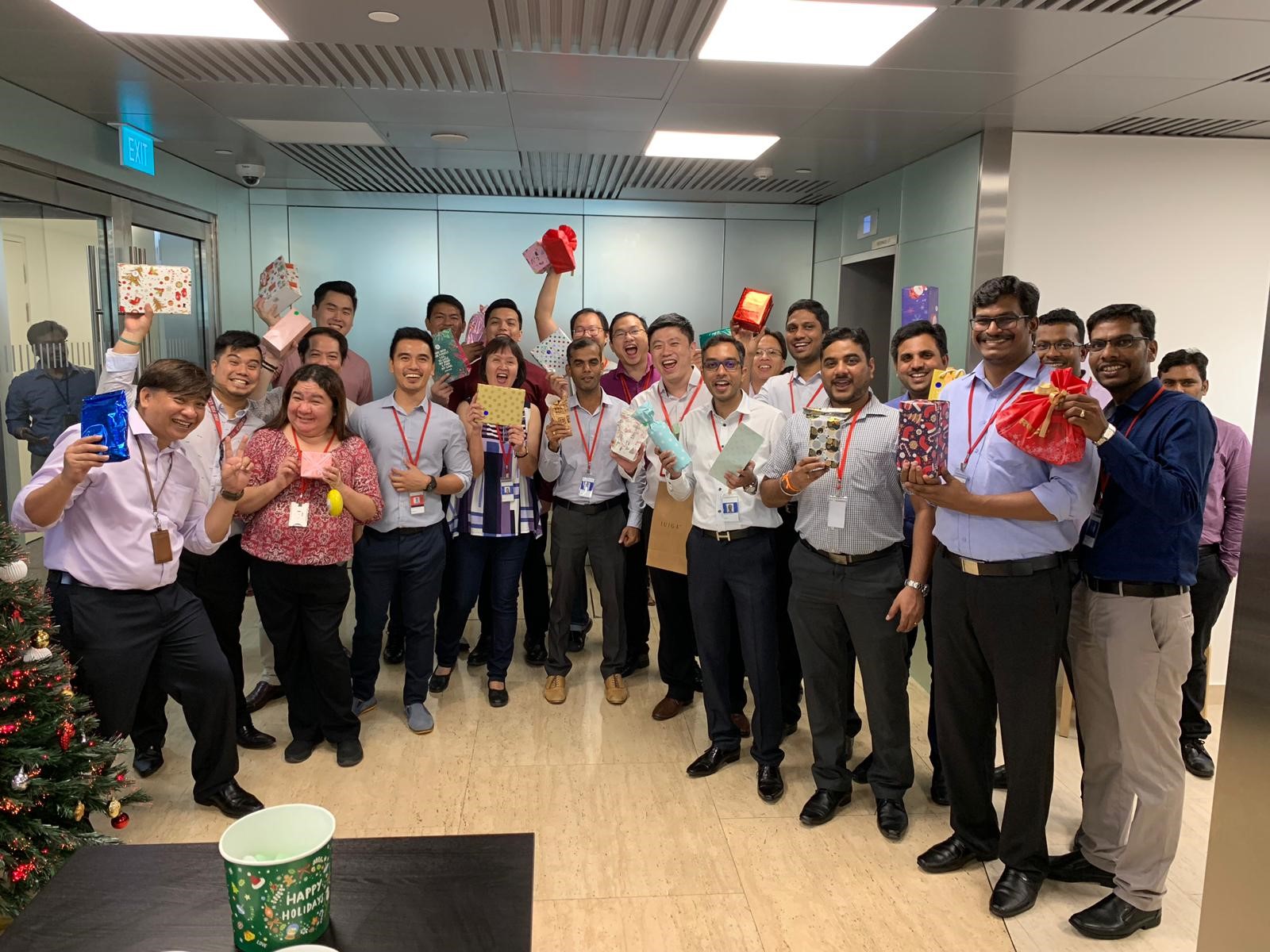Stepping up to the commander station
Stepping up to the commander station
Alan Quek is currently one of six Commanders at the OCBC Group Operations & Technology (O&T) Technology Command Centre, a post which he held for the past 5 years. Find out more about what it takes to run a team of 30 every shift at the SGD240 million regional data centre.
Having graduated from the National University of Singapore with a degree in Finance, Alan embarked on his journey with OCBC in 2003 through the then bank officer trainee programme. Yet, he knew that being at the front-line was not for him.
"I tried my hands at a part-time insurance role during my final year of university, and I remember it being unsuitable for me. The trainee programme offered rotations across the IT and operations department, and I remember taking on my first role in IT as a service desk agent. That was when I thought – yes, I could do this. What followed was 16 years with OCBC," Alan recounted.
During this time, Alan built domain knowledge and a strong foundation both in breadth and depth, first within service desk and service management, followed by rotations across the infrastructure and applications support teams.
"Back in 2006, I was offered a role with another company, and I was ready to leave for a change. A conversation with the infrastructure team manager changed my mind. I realized I didn't have to seek that change outside, and that opportunities across teams and divisions within OCBC were available if I asked, and if I was willing to try. I moved to the infrastructure team, and I have since completed 7 job rotations across the 1,400 employees strong Group Operations and Technology division in Singapore," Alan explained.

The Command Centre, Christmas, Dec 2018
Journey to becoming a Commander
It was this unique combination of both infrastructure and applications expertise that enabled Alan to take up the role as Commander in 2014. Alan currently oversees three functions, including cyber security (e.g. DDOS, malware, malicious emails monitoring), data centre operations (system tasks, batch jobs and facility management) and system monitoring (e.g. internet and mobile banking, ATM and credit cards). He leads a fixed team of 30, working on shift in rotation with 5 other Commanders.
When asked about objectives of the team, Alan elaborated, "our main responsibility is to ensure the integrity and stability of our Bank's infrastructure and services at any time. We engage in preventive activities, such as analysis of transaction volumes and status in search of anomalies. We also conduct troubleshooting and restoration, including escalation of cyber threats and issues wherever appropriate. In times of crisis, such as critical systems failures, I step in as the main contact person between senior management and stakeholders, including the Monetary Authority of Singapore, to inform and resolve issues at the soonest possible."
What makes or breaks
The role can be challenging and stressful, as potential risks are not always apparent. "The key principle I tell the team is to never take things for granted – do not rely only on sensors and monitoring systems. It is crucial to proactively hunt for potential loopholes and problems with the system. Only when you fully understand how all systems interact and in turn affect customers, that you could make quick decisive calls when we are under attack."
Many bright talents without an IT background have become top contributors within Alan's team. "I encourage my team to move around, try new roles, and be brave in speaking up. It is also important to always have the willingness to learn, not only within one's domain, but also other supporting systems. Only this way, can we protect the Bank's interests to our best ability."

